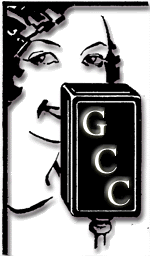Tactical Tuesday~Words Are the Voice of the Heart
Before we head into Tactical Tuesday, here are a few pieces of Blogosphere/Internet News:
Kristin Nelson of The Nelson Agency is now blogging. Watch out, Miss Snark! Actually, both blogs give a nice snapshot into the publishing industry, and I read them both, but I must give Kristin's a hearty Official O'Connor Endorsement because I know her, because she backs her blog with her credentials, and... because she's a sweetheart.
Also, authors MJ Rose and Anne Frasier have come up with an intriguing idea for book promotion... VIDEOS.
MJ's Vidlit
Anne's Video Trailer
And on to Tactical Tuesday...
Soon after I signed my book contract, I had lunch in San Francisco with my fabulous editor, Jen Enderlin of St. Martin's Press. While we were walking around Union Square, Jen said, "One of the things that drew me to your book was the unique voice. Voice is essential to my wanting to read, and make an offer on, a novel."
Writing teachers seem to agree: a compelling voice is crucial. They'll add one more heartbreaking caveat: It can't be taught. Mystery novelist Sheila Barrett (A View To Die For) says, "You can't teach 'voice' at all, of course, just compliment people and encourage them when they hit on their own particular way of telling the story."
So what's a writer to do?
One of the most wonderful authors of early chapter books for children is Barbara Park, author of the Junie B. Jones series. Junie, an intrepid kindergartener (then first-grader) possesses the most intriguing, child-like voice I've ever seen in fiction. Junie uses words like "bestest" and "beautifuller," describes clothing as having "puffery sleeves," and complains when her mother "grouches" certain oft-repeated phrases. Here's an excerpt from Junie B. Jones Loves Handsome Warren. Check it out--lots of fun. Hilariously, one mother at my children's school won't permit her daughter to read Junie B. books because "they teach poor grammar"! (File that one under "misses the point entirely...")
The Grammar Police notwithstanding, the Junie B. books have sold over 35 million copies. Why do children and librarians and parents (except the uptight ones) adore these books? It's because Junie has a unique, compelling, and genuine voice.
So how do YOU create a unique and compelling voice? Well, I can't guarantee you'll sell 35 million copies of your book, but here are a few tips to get you started.
1) Don't consciously try to copy a voice someone else has used successfully. If you read a dozen Junie B's and then try to write just like Barbara Park, you won't create a unique voice--it'll make you come across like a copycat of Barbara Park.
2) Don't fake it. If you find yourself going overboard, inventing words or affectations and muddying up your writing with gimmicks, backstep for a minute. Publishers say they want "original" voices, but I think what they really want are natural, likeable voices. Somewhere inside you, you already have a compelling way of expressing yourself. A solid voice ought to be as easy and natural to write as it is to read.
3) Be consistent. Don't start a piece sounding like Jeeves and finish it sounding like Huck Finn. Seems obvious, but you'd be surprised at how many authors shift voice from the beginning of a piece to the end. Voice is very often tied to character--so think of what an actor does. He or she stays in character throughout the entire play--even offstage!
4) Play. A good way to get yourself in the practice of creating and sticking to different voices is to practice writing scenes featuring very different characters. Try writing several different scenes, from the point of view of a tortured heiress, a Brooklyn janitor, a South Seas pirate, and a precocious four-year-old. In all likelihood, they'll choose different ways of expressing themselves.
5) Avoid dangerous overdoses. If you tend to absorb certain authors' voices when you write--don't read them when you are writing. Southern author Joshilyn Jackson says: "I do not read Southern Lit when drafting as it screws with MY voice." Jackson's debut novel (the fabbo gods in Alabama) hit the Southern bestseller lists, so she knows what she's talking about. EDIT--Shriek! Joshilyn said almost those exact words today, too! ("While Southern Gothic is my favorite, I can't read southern when I am drafting---it screws with my voice.") Great minds think alike, and all of that!
6) Lastly, and I think most importantly--Be honest! Don't be afraid of the voice that's pushing through. If it's loud and demanding--great. Listen to it. Write it. In my own book, my characters littered their speech and thoughts with four-letter words. Although I've taken some heat from people who simply don't like those words, I stand by my characters, and by my voice. How far would Barbara Park have gotten if she'd said to herself, "Hmm... lots of parents might not like it if Junie used improper grammar. I'm going to go back and correct all of it!"? As an author, you have to laugh at people like the Grammar Police and the Four-Letter-Word Brigade. If you can't... get out of the business.
That's it from me! Today my voice will be used in dealing with insurance companies, contractors, and accountants, not to mention the *expletive deleted~I'm sure I'll be on the phone with some of the Four-Letter-Word Brigade today* County Supervisor's office who couldn't be bothered to call me back. I would not wish a flood on my worst enemy--BUT, someday my voice will be used for crafting fiction once again. Have a great day, everyone!
Kristin Nelson of The Nelson Agency is now blogging. Watch out, Miss Snark! Actually, both blogs give a nice snapshot into the publishing industry, and I read them both, but I must give Kristin's a hearty Official O'Connor Endorsement because I know her, because she backs her blog with her credentials, and... because she's a sweetheart.
Also, authors MJ Rose and Anne Frasier have come up with an intriguing idea for book promotion... VIDEOS.
MJ's Vidlit
Anne's Video Trailer
And on to Tactical Tuesday...
"Words are the voice of the heart." ~Confucius


Soon after I signed my book contract, I had lunch in San Francisco with my fabulous editor, Jen Enderlin of St. Martin's Press. While we were walking around Union Square, Jen said, "One of the things that drew me to your book was the unique voice. Voice is essential to my wanting to read, and make an offer on, a novel."
Writing teachers seem to agree: a compelling voice is crucial. They'll add one more heartbreaking caveat: It can't be taught. Mystery novelist Sheila Barrett (A View To Die For) says, "You can't teach 'voice' at all, of course, just compliment people and encourage them when they hit on their own particular way of telling the story."
So what's a writer to do?
One of the most wonderful authors of early chapter books for children is Barbara Park, author of the Junie B. Jones series. Junie, an intrepid kindergartener (then first-grader) possesses the most intriguing, child-like voice I've ever seen in fiction. Junie uses words like "bestest" and "beautifuller," describes clothing as having "puffery sleeves," and complains when her mother "grouches" certain oft-repeated phrases. Here's an excerpt from Junie B. Jones Loves Handsome Warren. Check it out--lots of fun. Hilariously, one mother at my children's school won't permit her daughter to read Junie B. books because "they teach poor grammar"! (File that one under "misses the point entirely...")
The Grammar Police notwithstanding, the Junie B. books have sold over 35 million copies. Why do children and librarians and parents (except the uptight ones) adore these books? It's because Junie has a unique, compelling, and genuine voice.
So how do YOU create a unique and compelling voice? Well, I can't guarantee you'll sell 35 million copies of your book, but here are a few tips to get you started.
1) Don't consciously try to copy a voice someone else has used successfully. If you read a dozen Junie B's and then try to write just like Barbara Park, you won't create a unique voice--it'll make you come across like a copycat of Barbara Park.
2) Don't fake it. If you find yourself going overboard, inventing words or affectations and muddying up your writing with gimmicks, backstep for a minute. Publishers say they want "original" voices, but I think what they really want are natural, likeable voices. Somewhere inside you, you already have a compelling way of expressing yourself. A solid voice ought to be as easy and natural to write as it is to read.
3) Be consistent. Don't start a piece sounding like Jeeves and finish it sounding like Huck Finn. Seems obvious, but you'd be surprised at how many authors shift voice from the beginning of a piece to the end. Voice is very often tied to character--so think of what an actor does. He or she stays in character throughout the entire play--even offstage!
4) Play. A good way to get yourself in the practice of creating and sticking to different voices is to practice writing scenes featuring very different characters. Try writing several different scenes, from the point of view of a tortured heiress, a Brooklyn janitor, a South Seas pirate, and a precocious four-year-old. In all likelihood, they'll choose different ways of expressing themselves.
5) Avoid dangerous overdoses. If you tend to absorb certain authors' voices when you write--don't read them when you are writing. Southern author Joshilyn Jackson says: "I do not read Southern Lit when drafting as it screws with MY voice." Jackson's debut novel (the fabbo gods in Alabama) hit the Southern bestseller lists, so she knows what she's talking about. EDIT--Shriek! Joshilyn said almost those exact words today, too! ("While Southern Gothic is my favorite, I can't read southern when I am drafting---it screws with my voice.") Great minds think alike, and all of that!
6) Lastly, and I think most importantly--Be honest! Don't be afraid of the voice that's pushing through. If it's loud and demanding--great. Listen to it. Write it. In my own book, my characters littered their speech and thoughts with four-letter words. Although I've taken some heat from people who simply don't like those words, I stand by my characters, and by my voice. How far would Barbara Park have gotten if she'd said to herself, "Hmm... lots of parents might not like it if Junie used improper grammar. I'm going to go back and correct all of it!"? As an author, you have to laugh at people like the Grammar Police and the Four-Letter-Word Brigade. If you can't... get out of the business.
That's it from me! Today my voice will be used in dealing with insurance companies, contractors, and accountants, not to mention the *expletive deleted~I'm sure I'll be on the phone with some of the Four-Letter-Word Brigade today* County Supervisor's office who couldn't be bothered to call me back. I would not wish a flood on my worst enemy--BUT, someday my voice will be used for crafting fiction once again. Have a great day, everyone!








<< Home